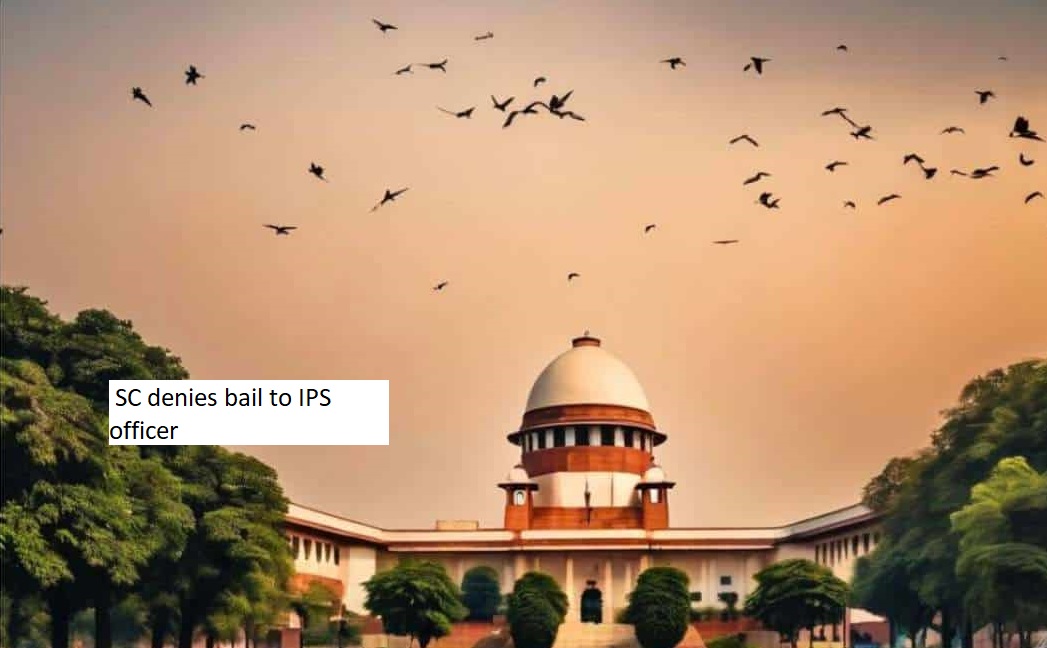


The Supreme Court's recent denial of anticipatory bail to former Superintendent of Police Aditya Kumar, an IPS officer, has brought to light a complex web of allegations involving the use of a conman to impersonate the Chief Justice of the Patna High Court. The purpose behind this elaborate ruse was purportedly to influence a corruption probe against the officer.
A bench comprising Justice Aniruddha Bose, Justice Ahsanuddin Amanullah, and Justice Augustine George Masih rendered the decision, emphasizing the serious nature of the alleged offenses. The crux of the accusations centers around the IPS officer's collaboration with co-accused individuals to thwart disciplinary actions initiated against him. The scheme involved the creation of a WhatsApp account, allegedly with the officer's knowledge, featuring a photograph of the then Chief Justice of the Patna High Court, who now serves as a judge in the Supreme Court.
From this deceptive WhatsApp account, calls and messages were purportedly made to the Director General of Police in Bihar, aimed at securing favorable decisions for the IPS officer. The Patna High Court had previously denied pre-arrest bail to the accused officer. The charges leveled against him span various sections of the Indian Penal Code, including 353 (assault or criminal force to deter public servant from discharge of his duty), 387 (putting a person in fear of death or of grievous hurt, in order to commit extortion), 419 (cheating by personation), 420 (cheating and dishonestly inducing delivery of property), 467 (forgery of valuable security, will, etc.), 468 (forgery for the purpose of cheating), and 120B (criminal conspiracy). Additionally, charges under Sections 66C and 66D of the Information Technology Act, 2000 have been invoked.
The Supreme Court, in denying anticipatory bail, took cognizance of the gravity of the alleged offenses. Furthermore, it issued directives for the Registrar General of the Patna High Court to submit, in a sealed cover, details of the actions taken by the High Court in response to the matter. Simultaneously, the investigating agency was instructed to provide the entire up-to-date Case Diary in a sealed cover.
The court's stance reflected a commitment to unveiling the truth, not only in the interest of maintaining the purity of judicial proceedings but also to uphold public faith in the overall legal system. The judges underscored the importance of addressing the revelations brought to light during the proceedings.
Senior Advocate Siddhartha Dave, representing the petitioner, argued that cooperation with the investigating agency had been consistent, and the submission of a Charge Sheet was imminent. He contended that no direct evidence had been uncovered against the petitioner. Despite these arguments, the court, considering the seriousness and gravity of the alleged offenses, deemed the petitioner ineligible for the benefit of anticipatory bail.
The court's decision was rooted in its perception of the petitioner's apparent non-cooperation and the weightiness of the charges. The complexity of the case, involving impersonation, forgery, and attempts to manipulate the course of justice, prompted the court to assert the necessity of further directions. The court's insistence on sealed covers for sensitive information indicated a meticulous approach to handling the intricacies of the case.
In conclusion, the denial of anticipatory bail to the IPS officer reflects the judiciary's commitment to upholding the integrity of legal proceedings and ensuring public confidence in the justice system. The case, with its layers of deception and alleged misconduct, underscores the challenges in safeguarding the sanctity of the legal process. The court's directives for sealed submissions suggest a nuanced awareness of the sensitive nature of the information involved and a determination to unravel the truth in the pursuit of justice.
TAGS: Supreme Court Anticipatory bail IPS officer Superintendent of Police Aditya Kumar Conman Chief Justice Patna High Cour